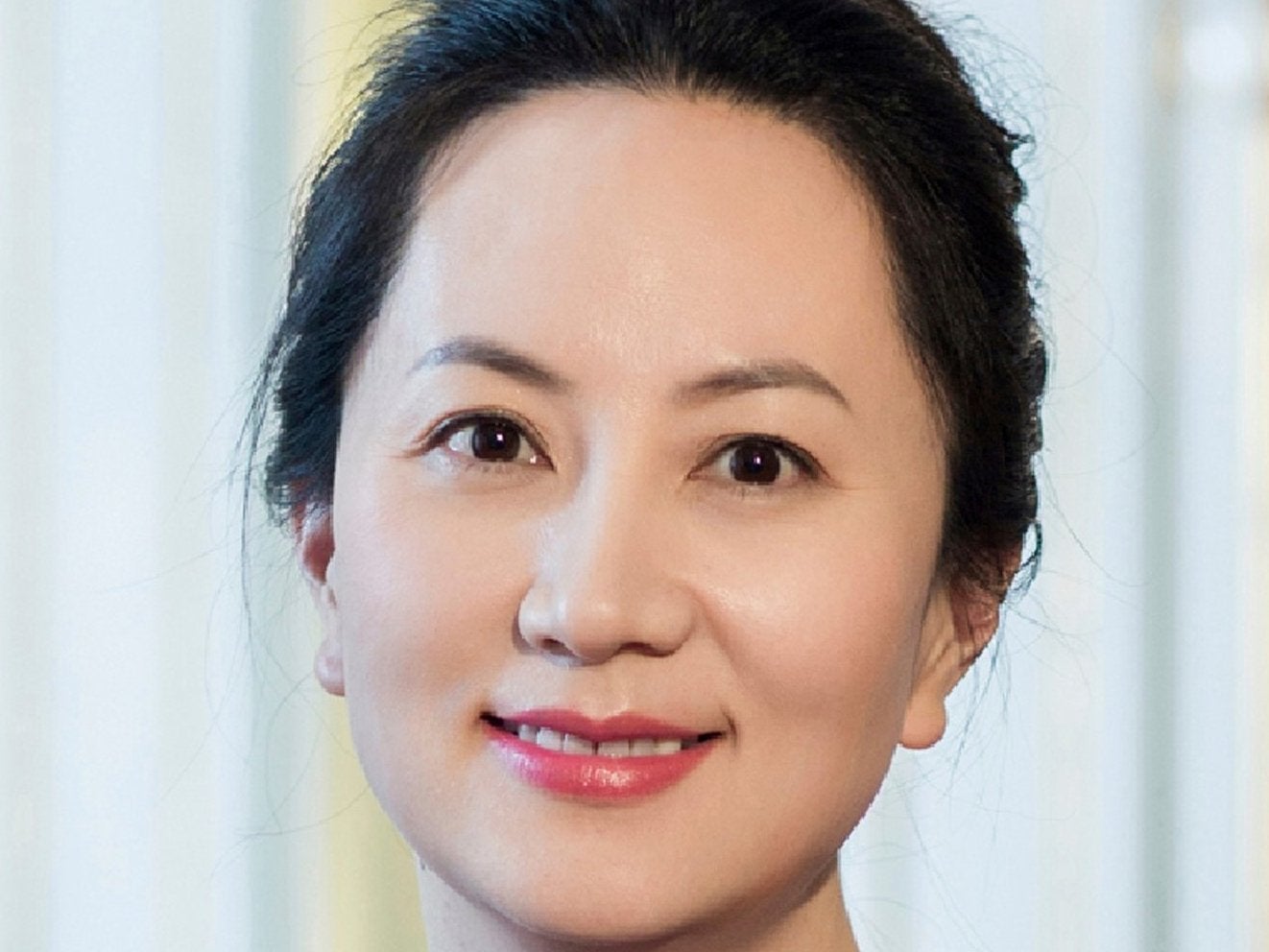Chinese tech workers told not to travel to US 'unless it's essential' after Huawei exec arrested
The arrest of CFO Meng Wanzhou has heightened tensions between the world's two biggest economies

Your support helps us to tell the story
From reproductive rights to climate change to Big Tech, The Independent is on the ground when the story is developing. Whether it's investigating the financials of Elon Musk's pro-Trump PAC or producing our latest documentary, 'The A Word', which shines a light on the American women fighting for reproductive rights, we know how important it is to parse out the facts from the messaging.
At such a critical moment in US history, we need reporters on the ground. Your donation allows us to keep sending journalists to speak to both sides of the story.
The Independent is trusted by Americans across the entire political spectrum. And unlike many other quality news outlets, we choose not to lock Americans out of our reporting and analysis with paywalls. We believe quality journalism should be available to everyone, paid for by those who can afford it.
Your support makes all the difference.Technology researchers in China have been ordered to not travel to the US unless it is absolutely necessary, amid rising tensions between the two countries.
Staff working in sensitive tech sectors were given the warning following the arrest of a Chinese tech executive in Canada, a source told the South China Morning Post.
Workers at a research agency were also told to remove any sensitive data from laptops, mobile phones and other devices if travel to the US was essential.
The warning comes after a similar order from US tech giant Cisco to some of its employees, which asked them the to any non-essential travel to China.
Cisco has since said the email to its employees was "sent in error."
The US has already revoked 10-year multiple-entry visas for some Chinese researchers specialising in China-US relations.
Tensions between the world's two biggest economies were raised earlier this month when Canadian authorities detained Meng Wanzhou, the chief financial officer of Chinese technology giant Huawei, at the request of US investigators.
Ms Meng, who is also the daughter of Huawei's founder, has since been released on bail but still risks being extradited to the US to face charges relating to her firm's allegedly breaking US sanctions in its dealings with Iran.
A spokesperson for the Chinese Foreign ministry said no evidence had been provided that suggests Ms Meng broke any laws in either the US or Canada.

Huawei also claims to have received "very little information" regarding the charges, adding that it "is not aware of any wrongdoing by Ms Meng."
US President Donald Trump said he would intervene in the case, so long as it is "for the good of the country" in securing a trade deal with China.
"If I think it's good for what will be certainly the largest trade deal ever made – which is a very important thing – what's good for national security, I would certainly intervene if I thought it was necessary," President Trump said following Ms Meng's arrest.
While on bail, the Huawei executive is required to wear a GPS tracker around her ankle and will be under 24 hour monitoring until February 2019, when she is due in court in Vancouver to set a date for her extradition hearing.
Join our commenting forum
Join thought-provoking conversations, follow other Independent readers and see their replies
Comments